To understand the island of Ireland in 1987 let me paint you a monochromatic picture.
Unemployment was at 18%, the country was still officially classified as a third-world shithole, the Catholic Taliban was firmly in control, it was easier for young people to score heroin than to buy condoms, gangs of capricious nuns roamed with impunity and paramilitary atrocities were a daily occurrence.
It was also the year we got our first colour TV.
Shortly after, Sinéad O’Connor released her debut album, The Lion and the Cobra, to equal parts blushing condemnation and critical acclaim.
After decades of rosaries, squinting windows, moving statues and glue sniffing tedium, life in Ireland suddenly started looking a lot more interesting.
(*Update: I’ve since been accused of exaggeration here so just want to clarify, yes we had colour TV in Ireland in the 80s, but no, we didn’t have one because we couldn’t afford one. All we had was a tiny Normende portable black and white hand-me-down telly.)
My earliest memories are all grey and washed out. Forget the 40 shades of green, I honestly can’t remember there being any colour in Ireland prior to 1987 other than grey rainclouds and navy school jumpers.
Then an explosion of colour; Zig and Zag after school, sledgehammers bashing the Berlin Wall, Nelson Mandela walking free, Ireland qualifying for our first World Cup and, of course, the contemptuous tutting of all the aul codgers every time Sinéad O’Connor’s appeared on the telly.
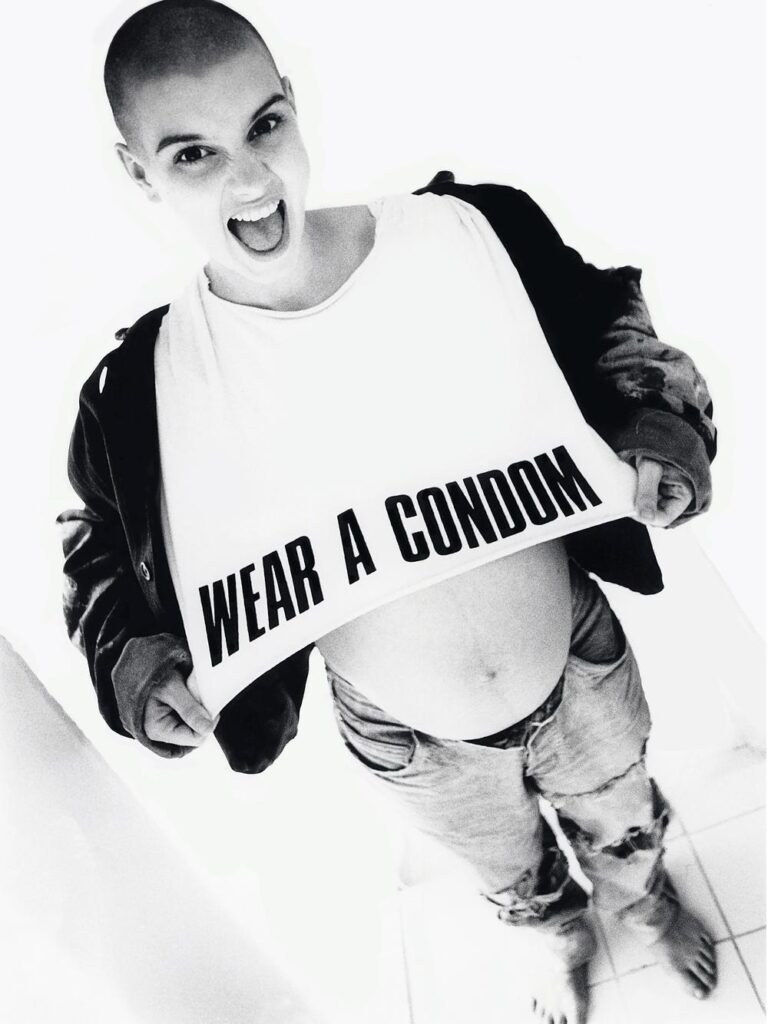
Born Irish with an artist’s soul, the seeds of rebellion were always in me. As they germinated under the stony grey soil of scholastic tedium, Sinéad O’Connor emerged as the nurturing ray of light they needed to sprout skyward.
She also awakened in me notions such as empathy, tolerance, spirituality and sensuality. Of course, I was still kinda fuzzy on what the last one was, but I had a general sense that I was going to like it eventually.
I didn’t quite understand the things she was angry about yet, but I knew this was a revolution in the making.
She was talking back to the grownups and showing that you could get away with it just by being brave enough.
In a country that felt compelled to be submissively silent, she took a courageous stance against all forms of oppression, hypocrisy, bigotry and bullshit.
No wonder she scared the bejayzus out of pious, obsequious rosary bead-clutching Ireland, despite embodying everything Christianity is supposed to espouse, things like tolerance, humility and faith.
Anyone who could get that kind of a visceral reaction from the grown-up establishment – teachers, priests, unfulfilled huffy housewives and rhubarb pudding-faced Late Late Show audience members – was clearly on the side of righteousness.
Ah here’s that miserable baldy wun again, dressed like she’s in mourning. She’s such a pretty girl too mind, dunno why she’d to go shavin’ her head and actin’ all mopey. What’s wrong with her like?
…ah Jayziz, here she is again, what’s she complaining about diss time, eh? Always sturrin’ up trubble dat wun! Why’s she wearin’ dat on hur tshirt? What’s dat say? Gawd blessus ‘n save us! Can you believe that now? I’m tellin’ yeh dat wun can’t stand not bein’ the centre of attention…
/cue another sticky sacful of letters to RTE ballbag Arthur Murphy.

Despite all the controversy, the mystery, the moral hysteria and theological brimstone, Sinéad O’Connor was readily understood by anyone who cared to listen.
(And eagerly derided by those who wouldn’t.)
Shy, delicate and waiflike, but with a fearless Amazonian roar, she stood alone, a vivid and lurid maternal dichotomy, a true force of nature from an island that thought all forms of natural behaviour sinful.
Her singing voice had the power to make grown men cry, only to later scream bloody murder because she dared to speak her mind.
Speaking too much truth for monochrome Ireland to handle.
So she left it to take on the world.
With the voice of an angel she often seemed saintlike. And yet she was punk as fuck.
Ripping into popes and patriarchs, denouncing false idols and slaughtering sacred calves.
Our priestess, our poet warrior, our 20th century Gráinne Mhaol, an electrifying and often terrifying Celtic Nyabingi, shorn to the scalp and raw to the core.
The last great Irish rockstar, who, like too many towering artistic talents, died way before her time.
But please don’t think for a second this is another bandwagon blog post, cashing in for clicks – like omg I can’t believe she’s gone! – this is a heartfelt homage from a fellow child of 80s Eireann typed out unfiltered and way past midnight because it’s not like I’m going to get any sleep now anyway.
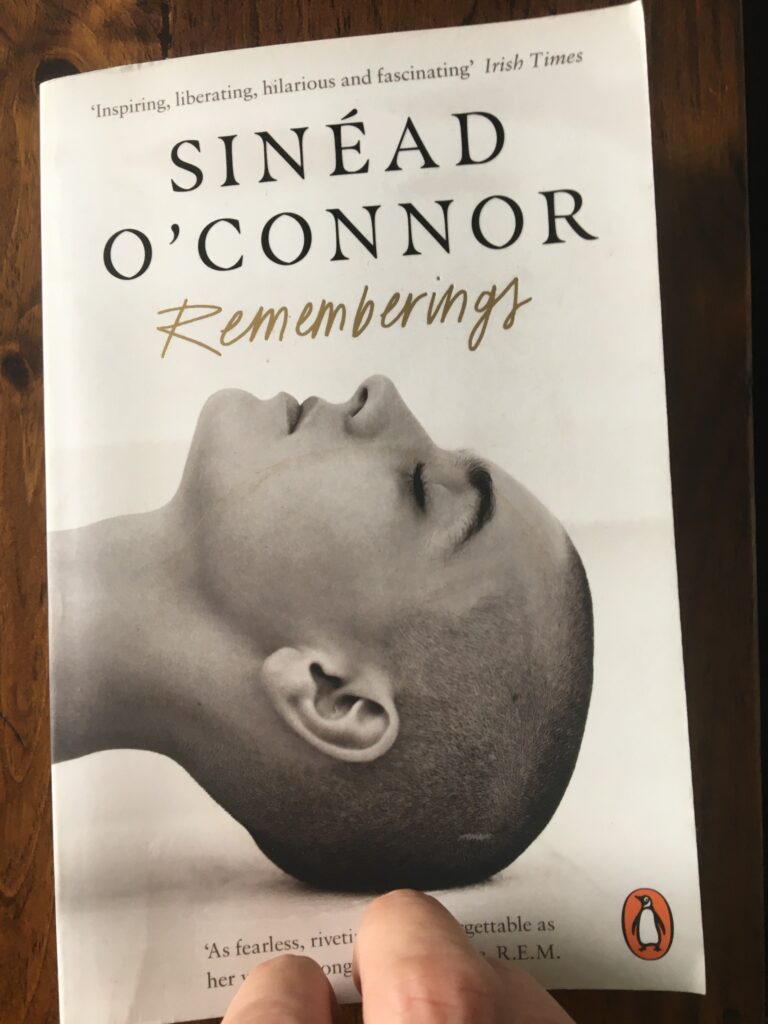
I feel right now like I’ve lost a childhood friend, or perhaps my crazy older sister, someone I’ve never actually met but none the less grown up with and who, in turn, has helped me to grow as the years went by. Now I finally understand how my parents must have felt after John Lennon was killed, because a part of who I am is now gone from this world.
So, as I sit up typing and chain smoking, I’ve picked a few songs to share, songs that, for me, define who she was and what she stood for.
And for sheer goosebumps per square decibel, we just have to start with Troy.
Dublin In A Rainstorm
This is Sinéad’s most powerful song, starting timid and building up force, like an anguished banshee channelling the lyrical power of Yeats into an almighty tempest of cathartic rage.
She’s as enigmatic as ever, of course, but that was her power. Always with her heart on her sleeve but with an eternal spring of mystery in reserve.
Troy is not a song I would ever dare to remix and I’m on standby to reprimand any who tries, but I do have to give props to Schiller for this ambient excursion which, though lacking the gravitas of the original, is sufficiently inventive and absorbing for me to include it below.
Fight The Power
Here’s a remix of another track from The Lion and the Cobra; I Want Your (Hands On Me) featuring guest vocals from MC Lyte – conservative 80s Ireland was definitely not ready for this one.
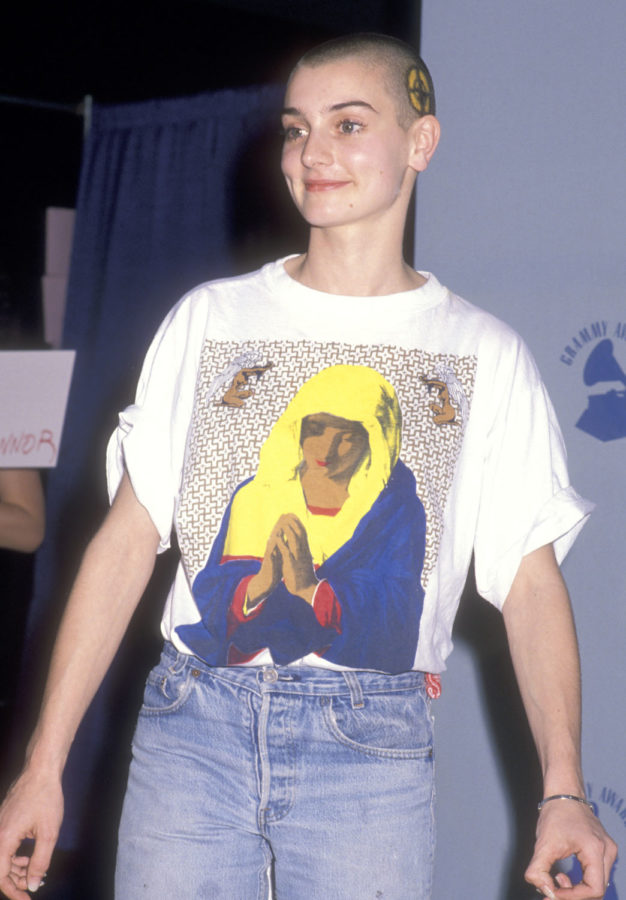
Hence the reason she appeared on the Grammys with a Public Enemy logo shaved into her head.
Industry types typically dismissed it as just another publicity stunt, though Chuck D knew otherwise.
To her hiphop, like reggae, was the voice of oppressed peoples and, therefore, universal.
1990’s I Do Not Want What I Haven’t Got features the track I Am Stretched On Your Grave. In it Sinéad sings what’s essentially an Irish air underpinned by the James Brown Funky Drummer break and very little else bar a minimal synth bassline.
Something which sounds bizarrely incongruous in theory but is masterful in execution.
I’ll admit I found her forays into reggae better suited than hiphop. Her rapping about the famine, for example, missed the mark in my opinion but at least she had the balls to try it. And in doing so raised awareness of a dark period of our history little known and frequently misunderstood outside of Ireland.
In 1994, the same year she released Universal Mother, she also collaborated with Marxman on their Talkin’ Loud debut album 33 Revolutions Per Minute.
Marxman were an Anglo-Hibernian hiphop collective who borrowed heavily from Irish traditional music and Marxist ideology. Exactly the kind of exotic project Sinéad found irresistible.
The track, Ship Ahoy, was an infectious boombox banger about the slave trade loaded up with bodhráns and banjos as Sinéad’s ethereal voice soared high above it all.
Empires and Vampires
Colonialism was, of course, a topic very near and dear to Sinéad’s heart but always with an international perspective. Her lyrics reflected this, as, indeed, did her choice of collaborators.
While the mainsteam frequently shunned her, she spread her artistic wings unabated, appearing on albums by groups like Afro Celt Sound System and Asian Dub Foundation.
Of all of these collaborations, though, perhaps her most damning indictment of imperialism was her collaboration with Bomb The Bass on the track Empire.
But rather than approaching the topic squarely from an Irish perspective, as she had done previously, Empire’s roots are more firmly in dub than in Dublin, as she equates the British Empire with that of a vampire;
Vampire, you feed on the life of a pure heart
Vampire you suck the life of goodness
Which is as good a segue my lazy, sleep-deprived brain can currently find to bring up the topic of her 2005 album, Throw Down Your Arms, an album of reggae covers with her actual holy communion photo on the album cover itself.
Throw Down Your Arms was recorded in Jamaica, produced by Sly and Robbie and featured covers of reggae legends like Burning Spear, Bob Marley and Peter Tosh.
Quite a ballsy move for a middle-class white girl from Dublin, but Sinéad was never one to play it safe.
In anyone else’s hands it would surely have been a disaster and derided as cultural appropriation but Sinéad makes each song her own through the power of her delivery and the authenticity of her convictions.
When Sinéad sings those songs there’s no doubt in your mind that she means every single word.
The result is a tribute not just to reggae music, but to the shared colonial history of two island nations shaped by the legacy of imperial British rule.
Sinéad developed her affinity for reggae music and Rastafarian theology shortly after moving to London in the 80s, where black, Irish and other immigrant communities shared a parallel struggle.
From the Rastas she learned the meaning of the phrase “Babylon”, before adopting the phrase as her own and doubling down in her opposition to it.
Fight The Real Enemy
Fire on Babylon is a track that best encapsulates Sinéad O’Connor’s struggle both personally and as an activist and artist. It is, first and foremost, a song about her mother, whose mental illness resulted in years of traumatic abuse for Sinéad and her siblings.
But at the same time, it’s about institutionalised oppression in general, the normalisation of sadism and violence by those in authority, wielded against those who lack the power to properly fight back.
For Sinéad, those twin evils were pretty much one and the same. Babylon, be it domestic or geopolitical, thrives in an atmosphere of apathy and fear – don’t speak out, don’t get involved, maintain the status quo. Be a nice, proper little Irish cailín who keeps her head down and never makes a fuss.
In that sense, Sinéad O’Connor was the pure and absolute anthesis of Babylon and, thanks to her musical legacy, always will be.
As an aside, Fire on Babylon came out in 1994, just after the “Summer of Jungle”, so it’s fitting that it had a remix by M Beat, who had a huge hit that year with their General Levy collab, Incredible.
As with the Schiller remix previously, I’m just adding this one in here since it’s a fairly decent remix that maybe not a lot of people are aware of.
Collaborations
The list of other artists Sinéad O’Connor’s worked with is a long and musically diverse one that includes Jah Wobble, Peter Gabriel, Terry Hall, Moby, Ian Brown, Shane MacGowan and U2, amongst others. And there’s still loads more material from Sinéad we’ve not heard yet.
A few days ago, David Holmes announced that, prior to her death, they were working on an album together. I do hope we get to hear some of that material at some point because there’s so much potential in that pairing.
But if we’re going to talk about collaborations, the dream team-up for me will always be the 2003 Massive Attack album 100th Window.
Discovering there was a new Massive Attack album out was cause for celebration enough, but when I first heard it and realised Sinéad O’Connor was involved my head exploded.
There hadn’t been as much hype around the album, but the timing was perfect, released on the eve of the Iraq invasion when anger and paranoia were peaking globally.
And the pairing was perfect too, a group known for being abstract and introspective and an artist known for being equal parts blunt and mysterious.
The standout track for me is the haunting and disquieting Special Cases, which takes Sinéad’s lullaby voice, drenches it in reverb and lets it rain down upon the shabby rooftops of a murky, Mezzanine-style soundscape.
What was this song about though? Was Sinéad, the supposed anti-patriarchal feminist icon, telling her sisters that sometimes you just need to cut your man some slack? Was it something more nuanced, about looking at the horrors of the world when compared to petty relationship squabbles and stepping back to get some perspective?
Was Sinéad being deliberately sardonic, playing with her public persona, revelling in the chance to confound expectations and cause confusion once again.
Or perhaps, rather than standing front and centre, it was just a relief to dissolve into the ambiguous Wild Bunch ether for a short while and be every bit as conceptually nebulous as her new Bristolian bandmates.
I like to imagine it was a combination of all those things but, as always, delivered with heartfelt sincerity. (She never could sing a song unless she truly believed in it anyway.)
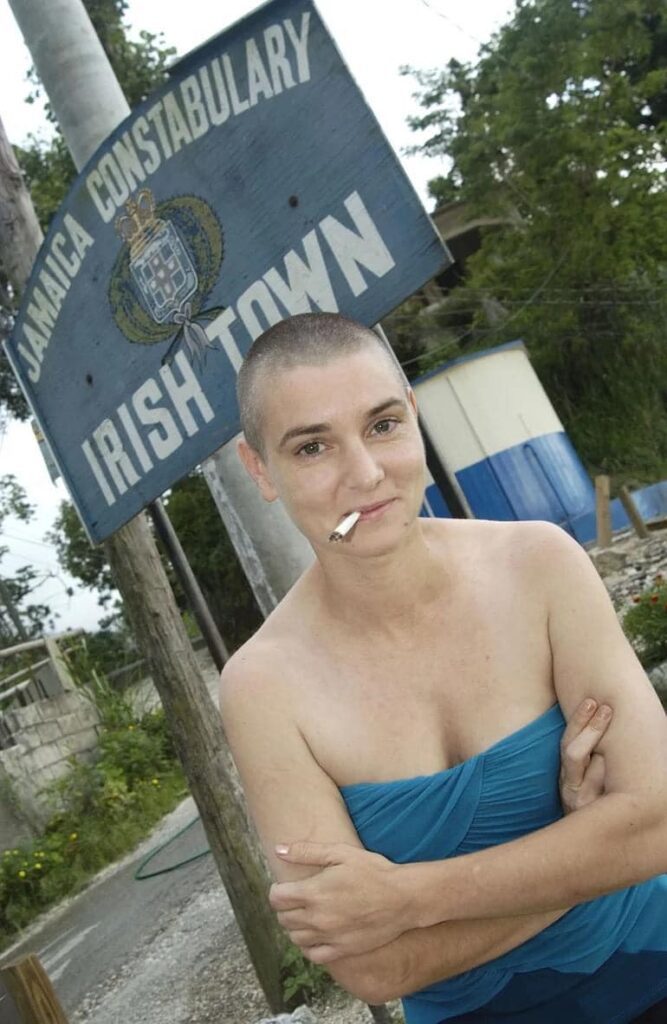
Even at her most enigmatic, Sinéad’s music always has clear-cut lines of good and evil. Her agenda was often borderline biblical – protect and cherish the good, cry out and unite against the wicked.
And in an increasingly polarised world full of shrieking intolerance and machine-automated false narratives, her voice, her courage and her truth is more important than ever.
Sinéad was woke before the word was co-opted, cancelled before the web was practically invented and through it all she stayed true to herself and never once sold her soul to the system.
My country in particular and our world in general is far more diverse and tolerant than it was when The Lion and the Cobra was released.
And that’s Sinéad’s legacy right there. She challenged the establishment at every turn and inspired generations to do likewise.
It was a hard fight to get this far and it’s clear there’s more battles to come. Babylon and its monochrome minions would love nothing more for us to all be dragged back to their dreary old world of black and white misery.
But we won’t let them.
Go raibh maith agat Sinead as dath a chur lenár saol
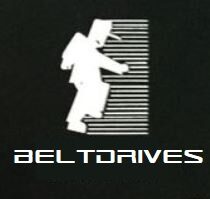

Thank you for writing this. No, really. Read that again. THANK YOU FOR WRITING THIS.
And thanks for reading, appreciate it and glad you liked it.
Sigh!
Lovely and some songs there I never heard before
Great article about her . Deep down she knew how much her fans loved her and her music. She did the best she could with her life with all of the shit that happened to her and the way her family and people treated her . She was misunderstood by a lot of world and dismissed as mental. She was human and she was an imperfect woman and mother and daughter. This is what I loved about her . Sinead was and is the Truth . Her music and message will live on and on ….